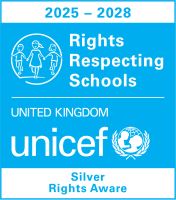Structured - Independent Living
Equals
My Independence Eq
The topic of my independence is linked to all aspects of the learning journey at Wren. Students are encouraged to become as independent as possible and step into adulthood with a variety of skills and abilities.
- Food Tech - Students make simple snacks such as toast, toasties, angel delight, milk shakes etc. A variety of teaching strategies are employed to enable students to become independent and eventually generalise their skills. Task analysis is used on this occasion as well, in order to monitor and increase progress.
- Dressing and Undressing - The students are encouraged to get ready to go outdoors by putting on their shoes and coats as independently as possible. The students are supported to recognise when it is too hot and begin to undo their coats, or taking their coats off. The adjectives and sensory experiences presented in the interoception sessions will be linked to this practical situation.
My Shopping Eq
To practice shopping skills, students take a coin into a local shop and will use it to buy an item. Students will use the process of one coin for one item.
My Thinking Skills Eq
Thinking skills are incorporated into activities such as dressing and undressing, cooking, shopping, cleaning etc. Thinking skills follow four stages: memory building, sabotage and recognition of memory, independent solutions and generalisation.
Wren Offer
| Free Play | Students are encouraged to play with different activities in a low-demand environment. The adults model how to play with these items and plan to expand their play skills in a gentle and personalised approach. |
| Focused Work | During this time, our students practice life skills on a 1:1 basis. The aim is to slow down and focus their attention on certain targeted skills in a low distraction area. |
| Interoception | Interoception is a lesser-known sense that helps you understand and feel what’s going on inside your body. Kids who struggle with the interoceptive sense may have trouble knowing when they feel hungry, full, hot, cold, or thirsty. Having trouble with this sense can also make self-regulation a challenge. Staff work with students to explore and eventually identify different sensations. The link to feelings is complete when the child is able to determine what is going on inside their own body. |
| Choose | Choose is similar to free play but presented in a slightly more structured way. The students use a preferred method of communication to make choices during this session. |
| Life Skills | Students complete jobs such as wiping down tables, hoovering and completing the washing up. Staff support and look to encourage as much independence as possible. The teachers use task analysis in order to target small steps of each of these skills. |
| Independent | The students are encouraged to complete a range of activities with different levels of support; hand over hand, visual schedule, verbal or gestural support. The aim is for the child to become independent at performing these tasks, as well as maintaining and generalising these skills. |
| Personal Care | Students are encouraged to complete personal care by themselves using task analysis to monitor progress. A prompt fading procedure is used to promote independence. |
| Lunch | Students sit together eating their lunch. At lunchtime, students are encouraged to collect their lunch and utensils from the cupboard themselves. They are encouraged to open packets and drinks themselves or ask for help using symbols or speech. When they finish, they are encouraged to throw their rubbish away, put lunch boxes back into their bag and wash any dishes used. Other social skills are encouraged, such as sitting appropriately at the table, using utensils rather than hands, and washing their faces and cleaning their tables. |
| Drink | Students will use their preferred method of communication to ask for a drink. |
| Snack | Students will set their snack table up, get the plates and cups out, and ask for snacks and drinks, using their preferred communication method. They are encouraged to tidy away afterwards. |
ASDAN
Encountering experiences
- Being a part of things
Students take part in a variety of activities, 1:1, or in small groups. They encounter a variety of stimuli, with different people and sometimes in different locations.






